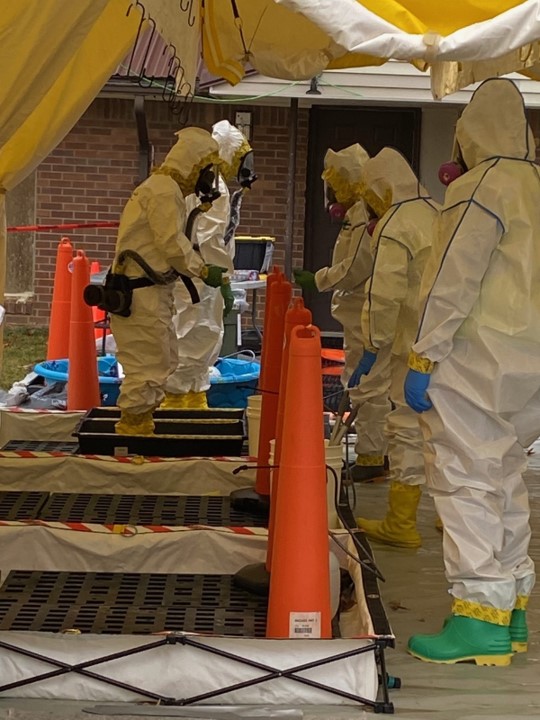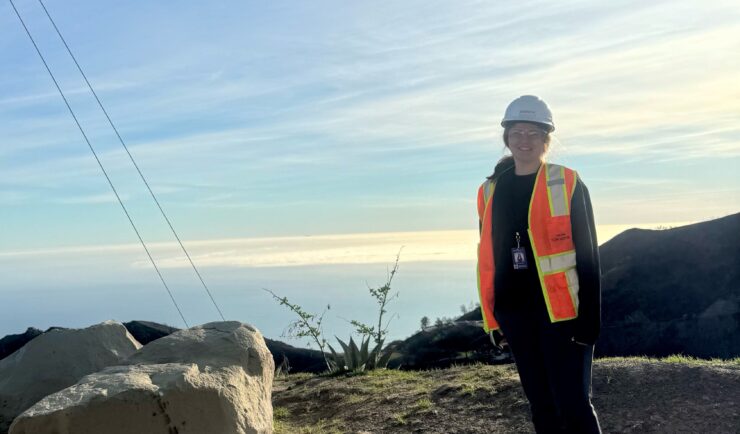- Success Stories, Uncategorized
- Emergency Preparedness & Response
Developing a Decontamination Line Guide for EPA Responders

CSS employee owners supporting the Environmental Protection Agency’s (EPA) Scientific and Technical Assistance for Consequence Management (STACM) contract have been working with the National Chemical Preparedness Workgroup and Sub Workgroups to create a decontamination (decon) line guide and detailed drawing for EPA on-scene coordinators and EPA’s special teams to use for emergency responses and incidents. The decon line guide and drawings presents a detailed approach and steps to decon responders for different levels of personal protective equipment (PPE) (A, B, C, and D) used during responses to dangerous chemicals in the field. The decon guide includes the steps and lists of equipment and materials needed to put together a decon line with most equipment commercially available off-the-shelf (COTS). CSS scientists developed the steps, guide, and drawings.
Following the development of the decon line guide, CSS scientists demonstrated the lines for EPA on-scene coordinators and special teams by directing the EPA responders through the line providing verbal instruction to ensure they followed all steps.
One critical step in an effective decon line is to screen each responder to ensure that no dangerous chemicals remain on their personal protective equipment (PPE). During the decon line demonstration, CSS scientists screen EPA responders with a chemical monitoring instrument to ensure all chemicals were removed. Following the decon, if CSS scientists detect chemicals on the PPE, they instruct the responder to return to the beginning of the decon line to repeat the process.
The line guide, processes, and demonstrations are critical in ensuring EPA responder safety when responding to dangerous chemicals in the field.


See More CSS Insights
CSS Awarded Five Year Subcontract Supporting the Bureau of Engraving and Printing
For over 22 years, CSS has supported the Bureau of Engraving and Printing (BEP). Originally as a prime contractor, CSS began supporting BEP in 2002. In November 2024, a new prime contractor, Koniag, signed CSS as a major subcontractor, which enabled CSS employee owners to continue providing comprehensive environmental, occupational safety and industrial hygiene support…

Supporting Response Efforts Following California Fires
Following the fires that devastated Los Angeles, California and surrounding areas in January 2025, CSS employee owners were deployed to the area as a subcontractor to Weston Solutions, Inc. to assist with the response. This effort supports U.S. Environmental Protection Agency (EPA) Region 9 Superfund Technical Assessment & Response Team (START) program. Initially, a CSS…

Contributing to Wind Energy Area Designations
The Bureau of Ocean Energy Management (BOEM) recently announced two Wind Energy Areas (WEAs) in the Gulf of Mexico. The WEAs are located off the coasts of Galveston, Texas, and Lake Charles, Louisiana and have the potential to power nearly three million homes. BOEM collaborated with the National Oceanic and Atmospheric Administration (NOAA) to identify…
